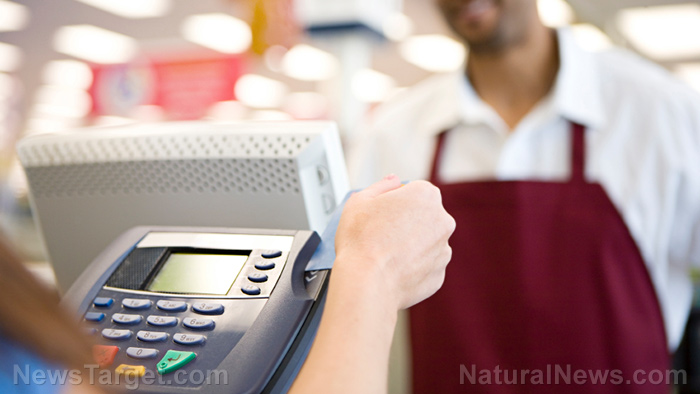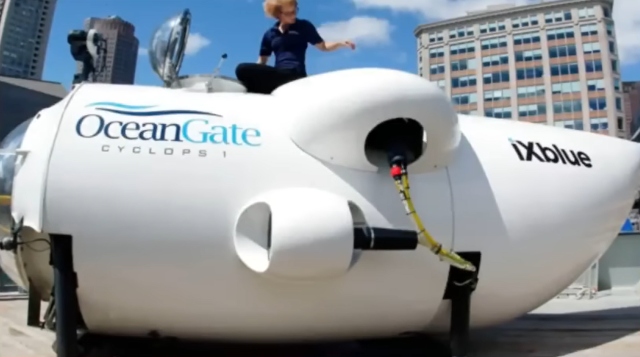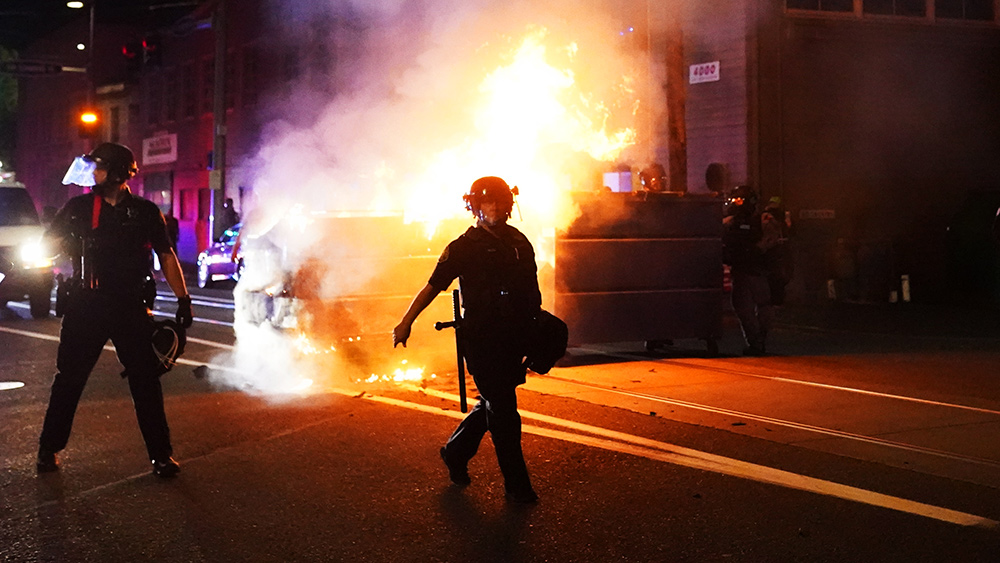Businesses in major US cities refusing to take cash payments due to “brutal” series of robberies
07/05/2023 / By Zoey Sky

For modern shoppers, cashless payments are a convenient option if you want to skip counting bills and coins while paying for your groceries.
But for store owners and employees in California, it’s an option that has helped protect businesses from robbers.
More businesses in Oakland, California, are refusing to accept cash payments as they try to get thieves to leave them alone amid an alarming increase in store robberies.
The switch to cashless payments is unusual because in 2019, San Francisco passed an ordinance that forbade stores from going cashless due to “the potential negative impacts on low-income citizens who may not qualify for credit cards.”
Meanwhile, some Oakland businesses said that the break-ins in the area have stopped since they stopped accepting cash payments. (Related: BAD APPLE: NYC shoplifting reports hit record levels for second straight year.)
Many of the businesses that shared their experiences can be found in Oakland’s Police Area 2, which has seen 137 commercial burglaries so far in 2023.
The figure is nearly triple the 52 burglaries reported in 2021, and up slightly from the 135 reported by this time in 2022.
Haemi Lee, an employee at Asha Tea House Oakland, said their store kept getting robbed for only $50, which was ironic because it was more expensive to fix the door. Lee added that the robberies have stopped since Asha Tea House went cashless.
Cafe Umami across the street also made the same decision roughly a year prior because thieves continued to target the cafe’s cash register.
Going cashless means sacrificing profits
While going cashless has benefited stores in Oakland wanting to prevent robberies, the decision to go cashless can also often hurt businesses’ bottom lines due to the fees associated with credit cards and other forms of cashless payment.
Chris Jackson, the manager of Oakland’s Rockridge District Association, said businesses could sacrifice as much as 2.5 percent to four percent of their profits by going cashless.
Jackson acknowledged that while going cashless hurts many Oakland businesses, he understands that it is the lesser of two evils because people are desperate and businesses are trying to survive.
Some Oakland store owners have also expressed their concerns that the decision to go cashless would harm low-income customers and people who do not have smartphones or credit cards.
Joel Digiorgio, co-owner of North Oakland pizzeria and beer garden Arthur Mac’s Tap and Shack, said he feels he has “betrayed his values regarding social equity by going cashless,” but he was also desperate due to a “brutal” series of robberies.
Digiorgio and his business partner have already spent $20,000 on security measures, such as alarms, cameras, horns, panic switches and strobe lights. They also met with local officials and police captains because of the recent robberies. But shortly after a June 26, 2022 robbery, where one employee was held at gunpoint, the store decided to go cashless to prioritize employee safety.
On May 24, Oakland Mayor Sheng Thao announced the arrest of nine suspects linked to more than 30 robberies. Thao also discussed Oakland’s efforts to prevent the string of robberies in the area.
These safety measures included having seven additional police officers dedicated to both foot patrol and traffic units. Thao also announced a restructuring of the public safety budget, with plans to increase the size of the force from 700 to 730 within the next two years.
In a press release, Thao said community safety is a priority for his administration. “People who commit crimes in Oakland will be held accountable,” he warned.
Tips to protect your business from robberies
If your business is often targeted by criminals, you must take efficient measures to protect your store and your employees.
Here are some tips that can help prevent burglaries and robberies:
Secure the premises before and after store hours
Store all valuable property in the store in a safe place.
Block access to store computers with a strong password to protect confidential customer information.
Save all electronic data and keep a backup at home.
Lock doors and entrances
Regularly check the condition of all store locks, and make sure you use sturdy locks.
The last employee to leave your commercial premises should always lock all the doors and windows. Include this important step in the closing instructions.
Arm the security systems
Check that your security systems are working properly. Always have a backup power supply in case of a power outage.
Get a video surveillance system to help reduce the risk of burglary at your store and gather evidence if there is a break-in.
Keep all windows clear
Burglars will often target easy-to-access store windows.
To reduce risks, don’t leave expensive equipment near your windows, either inside or outside.
Install theft prevention systems
Install transparent security film and special glass or bars on windows and glass doors. Doing this can help enhance security at each store entrance and reduce the risk of break-ins.
Keep your building well-lit
Install programmable or motion detector lights around your store.
Light all exterior building entrances and the adjacent street or alley. Keep accent lights on inside the store for better visibility at night.
Visit your store frequently
If you aren’t at your store the whole day, try to visit your business at least once a day.
To make sure burglars can’t predict when you’ll be there, visit the store at different times of the day.
Keep track of store keys and access cards
Keep an updated log to track the use of your keys and access cards. Instruct all employees to write down who has them, when they were handed out and when they were returned.
If any store keys are lost or stolen, immediately change all store locks.
Be careful when posting on social media
Always be mindful of your posts if you use social media to promote your business.
Posting that your store will be closed on certain days implies that the location will be unoccupied for an extended period. To prevent a break-in, publish posts that show someone is regularly visiting the building.
You can schedule posts to upload these days. Use photos that show you or several employees at the store.
Keep your business insurance policy active and your file up to date by notifying your property and casualty insurance agent of any changes. This will make it easier to file a claim and keep your business running after a burglary.
Watch the video below to know more about increasing incidences of shoplifting in the country.
This video is from the NewsClips channel on Brighteon.com.
More related stories:
NYC store locking cans of Spam and tuna in plastic cases to avoid THEFT.
Rampant theft prompts NYC grocery stores to consider locking up food.
Sources include:
Submit a correction >>
Tagged Under:
anarchy, anti-theft, big government, bubble, burglary, businesses, California, cashless payments, chaos, collapse, crime, currency reset, dangerous, finance, money supply, national security, Oakland, risk, robberies, security measure, theft
This article may contain statements that reflect the opinion of the author
RECENT NEWS & ARTICLES
COPYRIGHT © 2019 Dangerous.News
All content posted on this site is protected under Free Speech. Dangerous.News is not responsible for content written by contributing authors. The information on this site is provided for educational and entertainment purposes only. It is not intended as a substitute for professional advice of any kind. Dangerous.News assumes no responsibility for the use or misuse of this material. All trademarks, registered trademarks and service marks mentioned on this site are the property of their respective owners.



















